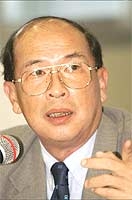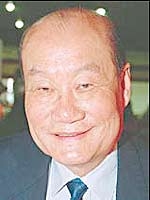Ten days ago, we reported that Thailand is not buying OLPC's in 2007, since they did not have a laptop purchase in the 2007 budget. Also, Thailand ICT Minister, Professor Sitthichai Pokai-udom wasn't too keen on the whole Open Source concept, the underlying basis of the One Laptop Per Child's operating system technology.
Professor Sitthichai isquoted by the Bangkok Post as dismissing Open Source Software:
"With open source, there is no intellectual property. Anyone can use it and all your ideas become public domain. If nobody can make money from it, there will be no development and open source software quickly becomes outdated," he said.As we mourned the loss of Thailand, OLPC Thailand, along with the Open Source community raced to reverse this decision. Both groups met with Dr. Sitthichai to discuss the project and the merits of Thai Open Source software.Apart from Linux, he claimed that most open source software is often abandoned and not developed, and leads to a lot of low-quality software with lots of bugs. "As a programmer, if I can write good code, why should I give it away? Thailand can do good source code without open source," he said.
Thai blogger Songphan Choemprayongi said the meeting went well:
Four major topics were reported: the background of the project and the status of OLPC in Thailand, specifications of hardware with demonstration, specifications of software, and the travel report when the team went to MIT.While Thailand's Open Source community celebrated and it looked like OLPC Thailand sales were back on, Dr. Sitthichai was smart in hedging his enthusiasm with the reference to other decision makers. According to The Nation Education Minister Wijit Srisa-arn, presumably Dr. Sitthichai's boss, has decided to end Thailand's participation in developing the Children's Machine XO. The Nation quotes Minister Wijit as saying:The minister said the project was not clear in the previous government. There was no budget allocation and recorded information. Thus, he did not know anything about the project officially, except from media. After the meeting, he thanked the team to give more information so he could see the overall picture of the project. He said he see this project is beneficial and he will support the project.
However, he emphasized that he is not the only decision maker who can directly approve the project. He is also willing to meet Professor Nicholas Negroponte when he comes to Thailand in December.
"We will not focus too much on technology and materials. We will focus on substance,"Substance in this case would be focusing on basic education standards and the financial ability of the state to administer OLPC XO distribution. Financial ability to pay for all the auxiliary costs of technology, the real cost of the OLPC that aren't expressed in the $140 or $208 purchase prices announced so far.
Education Minister Wijit expressed one aspect of this total cost of ownership for computers in the The Bangkok Post:
In some cases high technology can be a liability, said the minister. ''The 'dream school' project is a good example. The participating schools make a big deal about how fast the internet connection is. Yet they are worried about footing the power bills,'' he said.Or to look at the OLPC project in a much larger context as Prachum Nimnoo, director of the state-run Ban Pong Nok school in Chiang Mai did:
''[The projects] involve more political gains and financial interests than educational benefits. State officials are forced to get involved and find themselves in trouble,'' he said.And trouble is what Nicholas Negroponte and Seymour Papert are in with their upcoming visit to Thailand in December. Trouble from the Education Minister, trouble form the ICT Minister, trouble from lowly school directors.
And now you understand why Negroponte was so happy with his One Lpatop Per Libyan Child agreement with Colonel Muammar Abu Minyar al-Qaddafi. In Libya there is little military coup risk for OLPC sales.



